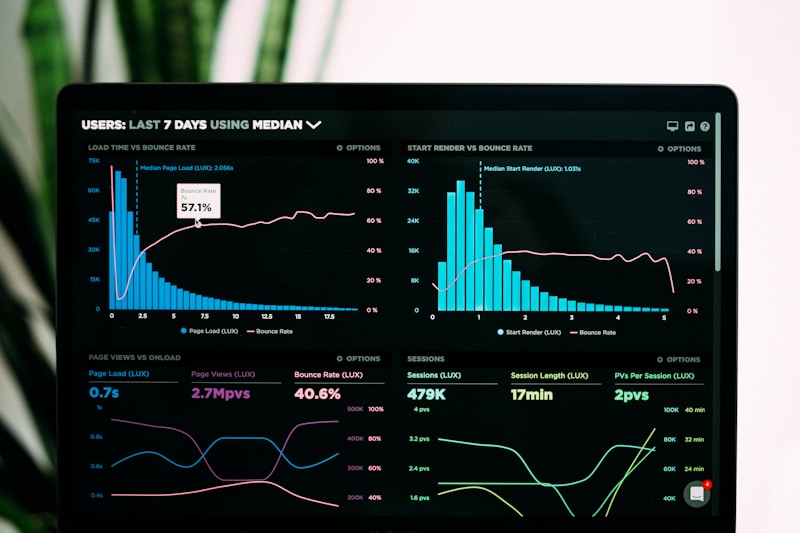White Label SEO Reporting Tools: Complete Guide for Agencies Using dtcpack.cn
In today's competitive digital marketing landscape, agencies need powerful tools to deliver exceptional SEO reporting while maintaining their brand identity. White label SEO reporting tools have emerged as the ultimate solution for agencies looking to scale their operations and provide professional, branded reports to clients. At dtcpack.cn, we understand the critical importance of seamless SEO reporting that not only delivers insights but also strengthens your agency's professional image.
Whether you're managing multiple client campaigns or seeking to streamline your reporting processes, implementing the right white label SEO reporting solution can transform your agency's efficiency and client satisfaction rates. This comprehensive guide explores everything you need to know about selecting, implementing, and maximizing the value of white label SEO reporting tools for your global business operations.
Understanding White Label SEO Reporting Tools
White label SEO reporting tools represent a revolutionary approach to client reporting that allows agencies to rebrand professional SEO analytics and insights as their own. These sophisticated platforms eliminate the need for manual report creation while maintaining complete brand consistency across all client touchpoints. By leveraging white label SEO reporting solutions, agencies can focus on strategy and optimization rather than spending countless hours on report generation.
The fundamental concept behind white label reporting lies in its ability to seamlessly integrate with your existing workflow while presenting data under your agency's branding. This means your clients receive professional, comprehensive reports that appear to be created entirely by your team, strengthening your position as a full-service SEO provider. Modern white label platforms offer extensive customization options, from logo placement to color schemes, ensuring every report aligns perfectly with your brand guidelines.
Furthermore, these tools aggregate data from multiple sources, including Google Analytics, Search Console, and various third-party SEO platforms, creating a unified reporting experience. This consolidation not only saves time but also provides clients with a holistic view of their SEO performance without the complexity of accessing multiple platforms.
Key Features to Look for in a White Label SEO Reporting Tool
Selecting the right white label SEO reporting tool requires careful consideration of essential features that align with your agency's needs and client expectations. The market offers numerous solutions, but not all platforms provide the comprehensive functionality necessary for professional agency operations.
Customizable Branding Options
Explanation: Customizable branding options form the cornerstone of any effective white label SEO reporting tool. This feature enables agencies to completely transform the visual identity of reports, dashboards, and client portals to match their brand aesthetic. From uploading custom logos and selecting brand colors to modifying fonts and layout templates, these options ensure complete brand consistency across all client communications.
Advantages: The primary advantage of robust branding customization is the professional image it projects to clients. When clients receive reports that seamlessly integrate with your agency's visual identity, it reinforces your credibility and expertise. Additionally, branded reports eliminate any confusion about service providers and strengthen client relationships by maintaining a consistent brand experience throughout the engagement.
Limitations: While customization options are extensive, some platforms may have restrictions on certain design elements or require technical expertise for advanced modifications. Additionally, excessive customization can sometimes impact report loading times or compatibility with certain email clients, potentially affecting the user experience.
Safety Considerations: When implementing custom branding, ensure all uploaded assets are properly licensed and comply with copyright regulations. Additionally, maintain backup copies of your branding configurations and regularly test report displays across different devices and platforms to ensure consistent presentation.
Automated Report Generation
Explanation: Automated report generation revolutionizes the way agencies deliver SEO insights to clients by eliminating manual data compilation and formatting. This feature automatically pulls data from connected sources, applies predefined templates, and generates comprehensive reports on scheduled intervals. Advanced automation can include custom metrics, comparative analysis, and performance trends without human intervention.
Advantages: The time-saving benefits of automation cannot be overstated – what once took hours now happens in minutes. Automation ensures consistency in reporting format and frequency, reducing human error and allowing team members to focus on strategic tasks. Scheduled reports maintain regular client communication and demonstrate ongoing value, while instant report generation enables quick responses to client requests.
Limitations: Automated systems may struggle with nuanced analysis or contextual explanations that require human insight. Some platforms have limitations on the number of automated reports or scheduling options available at different pricing tiers. Additionally, over-reliance on automation without regular review can lead to missed opportunities for customization or addressing specific client concerns.
Safety Considerations: Implement proper data validation protocols to ensure automated reports accurately reflect current performance metrics. Regular audits of automated processes help identify any data discrepancies or connection issues. Maintain manual oversight of critical reports and establish fail-safe mechanisms to alert administrators of automation failures.
Integration with Popular SEO Platforms
Explanation: Seamless integration with popular SEO platforms enables white label reporting tools to aggregate data from multiple sources into unified, comprehensive reports. These integrations typically include connections to Google Analytics, Search Console, SEMrush, Ahrefs, Moz, and other industry-standard tools, creating a centralized reporting hub for all SEO metrics.
Advantages: Platform integration eliminates the need for manual data entry and reduces the risk of errors in report compilation. Clients benefit from comprehensive insights that combine data from various sources, providing a complete picture of their SEO performance. This connectivity also enables real-time data updates and ensures reports always reflect the most current information available.
Limitations: Integration capabilities vary significantly between platforms, with some tools offering limited connection options or requiring additional fees for premium integrations. API limitations from third-party platforms can restrict data access or update frequency. Additionally, maintaining multiple integrations requires ongoing management and troubleshooting when connections fail or APIs change.
Safety Considerations: Protect client data by implementing secure authentication protocols for all platform integrations. Regularly review and update API permissions to ensure minimal necessary access. Maintain detailed documentation of all active integrations and establish procedures for handling integration failures or data breaches.
Real-Time Data Tracking
Explanation: Real-time data tracking provides immediate visibility into SEO performance metrics, enabling agencies to monitor campaign progress and respond quickly to changes. This feature continuously updates dashboards and reports with the latest data, offering instant insights into keyword rankings, traffic patterns, and conversion metrics as they happen.
Advantages: Immediate access to performance data enables proactive campaign management and rapid response to issues or opportunities. Real-time tracking helps identify trends early, allowing for timely strategy adjustments. Clients appreciate the transparency and immediacy of real-time reporting, which demonstrates ongoing value and active campaign management.
Limitations: Real-time processing can be resource-intensive and may impact system performance during peak usage periods. Some metrics, particularly those from third-party sources, may have inherent delays that prevent true real-time updates. Additionally, constant data updates can create information overload if not properly filtered and presented.
Safety Considerations: Implement proper data caching and backup systems to prevent data loss during real-time processing. Monitor system resources to prevent overload and ensure stable performance. Establish clear data retention policies and ensure compliance with privacy regulations when handling real-time client data.
Multi-Client Management Capabilities
Explanation: Multi-client management capabilities enable agencies to efficiently handle numerous client accounts from a single platform. This feature includes separate client workspaces, customized access permissions, bulk reporting options, and centralized campaign management tools that streamline operations across multiple accounts.
Advantages: Centralized management significantly reduces administrative overhead and improves operational efficiency. Agencies can maintain consistent reporting standards across all clients while still providing customized insights. Bulk operations save time on routine tasks, and role-based access controls ensure data security and appropriate visibility for team members and clients.
Limitations: Platform limitations on the number of client accounts or users can restrict agency growth. Complex permission structures may require careful management to prevent unauthorized access. Some platforms may experience performance degradation with large numbers of active clients, affecting report generation speed and system responsiveness.
Safety Considerations: Implement strict access controls and regular audits of user permissions to maintain data security. Establish clear data segregation protocols to prevent cross-client data exposure. Maintain detailed logs of all multi-client operations and ensure compliance with data protection regulations for each client's jurisdiction.
Benefits of Implementing a White Label SEO Reporting Solution
The implementation of a white label SEO reporting solution delivers transformative benefits that extend far beyond simple time savings. Agencies utilizing platforms like dtcpack.cn experience significant improvements in operational efficiency, client satisfaction, and business scalability. These comprehensive benefits position agencies for sustainable growth while maintaining high service quality standards.
First and foremost, white label solutions dramatically reduce the time investment required for report creation and delivery. What traditionally consumed hours of manual work can now be accomplished in minutes through automated processes and pre-configured templates. This efficiency gain allows team members to redirect their efforts toward strategic planning, campaign optimization, and client relationship building – activities that directly contribute to business growth and client success.
Brand consistency represents another crucial advantage of white label reporting. Every client interaction reinforces your agency's professional image through cohesive branding across all reports and dashboards. This consistency builds trust and credibility, essential factors in client retention and referral generation. When clients perceive your agency as the sole provider of comprehensive SEO insights, it strengthens your position as an indispensable partner in their digital success.
Scalability becomes significantly more manageable with white label reporting tools. As your agency grows and takes on additional clients, the reporting infrastructure scales seamlessly without proportional increases in resource requirements. This scalability enables agencies to maintain service quality while expanding their client base, creating opportunities for increased revenue without corresponding increases in operational costs.
Client satisfaction invariably improves when agencies implement professional white label reporting solutions. Regular, comprehensive reports keep clients informed and engaged with their SEO campaigns. The professional presentation and depth of insights provided by these tools demonstrate value and justify ongoing investment in SEO services. Additionally, self-service client portals empower clients to access their data independently, reducing support requests and improving overall satisfaction.
How to Select the Right White Label SEO Reporting Tool for Global Use
Choosing the appropriate white label SEO reporting tool for global operations requires careful evaluation of multiple factors that impact both immediate functionality and long-term scalability. The selection process should begin with a comprehensive assessment of your agency's current needs, growth projections, and client requirements across different markets and regions.
Start by evaluating the platform's global capabilities, including multi-language support, regional data compliance, and server locations that ensure optimal performance across different geographical areas. For agencies serving international clients, the ability to generate reports in multiple languages and currencies becomes essential. Additionally, consider time zone management features that facilitate scheduling and delivery of reports to clients in different regions.
Integration capabilities should align with the tools and platforms commonly used in your target markets. While Google's suite of tools enjoys global dominance, regional variations exist, particularly in markets like China or Russia where alternative platforms prevail. Ensure your chosen solution can accommodate these regional differences while maintaining consistent reporting quality.
Pricing structures and scalability options deserve careful consideration, particularly for agencies planning international expansion. Evaluate whether the platform offers flexible pricing that accommodates growth without imposing prohibitive costs. Consider factors such as user limits, client account restrictions, and data usage allowances that might impact your ability to serve a growing global client base.
Technical support and training resources play crucial roles in successful implementation and ongoing operations. Assess the availability of support across different time zones, the quality of documentation, and the existence of training programs that can help your team maximize the platform's capabilities. Platforms that offer dedicated account management or implementation support can significantly smooth the adoption process.
Security and compliance features become increasingly important when handling data from multiple jurisdictions. Ensure the platform maintains appropriate certifications and complies with international data protection regulations such as GDPR, CCPA, and other regional requirements. Data encryption, secure storage, and transparent data handling policies should be non-negotiable requirements in your selection criteria.
Conclusion
The evolution of white label SEO reporting tools has fundamentally transformed how agencies deliver value to their clients while maintaining operational efficiency and brand consistency. Throughout this comprehensive guide, we've explored the essential features, benefits, and selection criteria that define successful implementation of these powerful platforms. The integration of sophisticated reporting capabilities with complete brand customization creates unprecedented opportunities for agencies to scale their operations while maintaining exceptional service quality.
As the digital marketing landscape continues to evolve, the importance of professional, data-driven reporting will only intensify. Agencies that invest in robust white label SEO reporting solutions position themselves at the forefront of industry innovation, equipped to meet growing client demands for transparency, insights, and measurable results. The features we've discussed – from customizable branding and automated generation to real-time tracking and multi-client management – represent the foundation of modern agency operations.
For agencies ready to transform their reporting capabilities and accelerate growth, dtcpack.cn offers comprehensive white label SEO reporting solutions designed for global scalability and exceptional client satisfaction. By implementing the right tool and following the selection guidelines outlined in this guide, your agency can unlock new levels of efficiency, professionalism, and client value delivery. The future of SEO reporting is white label, automated, and infinitely scalable – ensuring your agency remains competitive and valuable in an increasingly data-driven marketplace.
FAQs
What is a white label SEO reporting tool?
A white label SEO reporting tool is a comprehensive software platform that enables digital marketing agencies to generate professional SEO reports under their own branding. These tools aggregate data from multiple sources including Google Analytics, Search Console, and various SEO platforms, presenting insights through customizable templates that reflect the agency's visual identity. Unlike standard reporting tools, white label solutions remove all references to the original software provider, allowing agencies to present reports as if they were created entirely in-house, strengthening their professional image and client relationships.
Why should agencies use white label SEO reporting tools?
Agencies should implement white label SEO reporting tools to dramatically improve operational efficiency while maintaining consistent brand presentation across all client communications. These platforms eliminate hours of manual report creation through automation, ensure professional and error-free reporting, and enable scalable growth without proportional increases in resources. Additionally, white label tools enhance client satisfaction through regular, comprehensive insights presented in a professional format, ultimately improving retention rates and justifying ongoing service investments while positioning the agency as a sophisticated, full-service SEO provider.
How to choose the right white label SEO reporting tool for my business?
Selecting the ideal white label SEO reporting tool requires evaluating your agency's specific needs, growth projections, and client requirements against platform capabilities. Begin by assessing essential features like customization options, integration capabilities with your existing tool stack, and scalability potential for your projected growth. Consider factors such as pricing structures, support quality, training resources, and compliance with data protection regulations in your operating regions. Request demos or trials from shortlisted platforms to test user experience, report quality, and client portal functionality before making a final decision that aligns with your long-term business objectives.
What are common mistakes when using white label SEO reporting tools?
Common mistakes include over-relying on automation without adding personalized insights or context that clients value, failing to properly configure and test integrations leading to data discrepancies, and neglecting regular platform updates that could impact functionality or security. Agencies often underutilize available features, missing opportunities to enhance reports with custom metrics or advanced visualizations. Another critical error is inadequate team training, resulting in inconsistent usage and suboptimal results. Additionally, some agencies fail to maintain proper data governance and access controls, potentially compromising client data security or creating compliance issues.
Can white label SEO reporting tools integrate with existing analytics software?
Yes, most professional white label SEO reporting tools offer extensive integration capabilities with popular analytics and SEO platforms. These typically include native connections to Google Analytics, Google Search Console, Google Ads, Facebook Ads, and major SEO tools like SEMrush, Ahrefs, Moz, and Majestic. Advanced platforms also support API connections for custom integrations with proprietary or specialized tools. Integration depth varies by platform, with some offering real-time data synchronization while others update on scheduled intervals. When evaluating tools, verify specific integration availability and any associated limitations or additional costs to ensure compatibility with your existing technology stack.
Latest: How to Use Infographics for SEO: Complete Guide to Boosting Search Rankings
Next: Complete Guide to AI Gender Detection Technology and Tools in 2024













